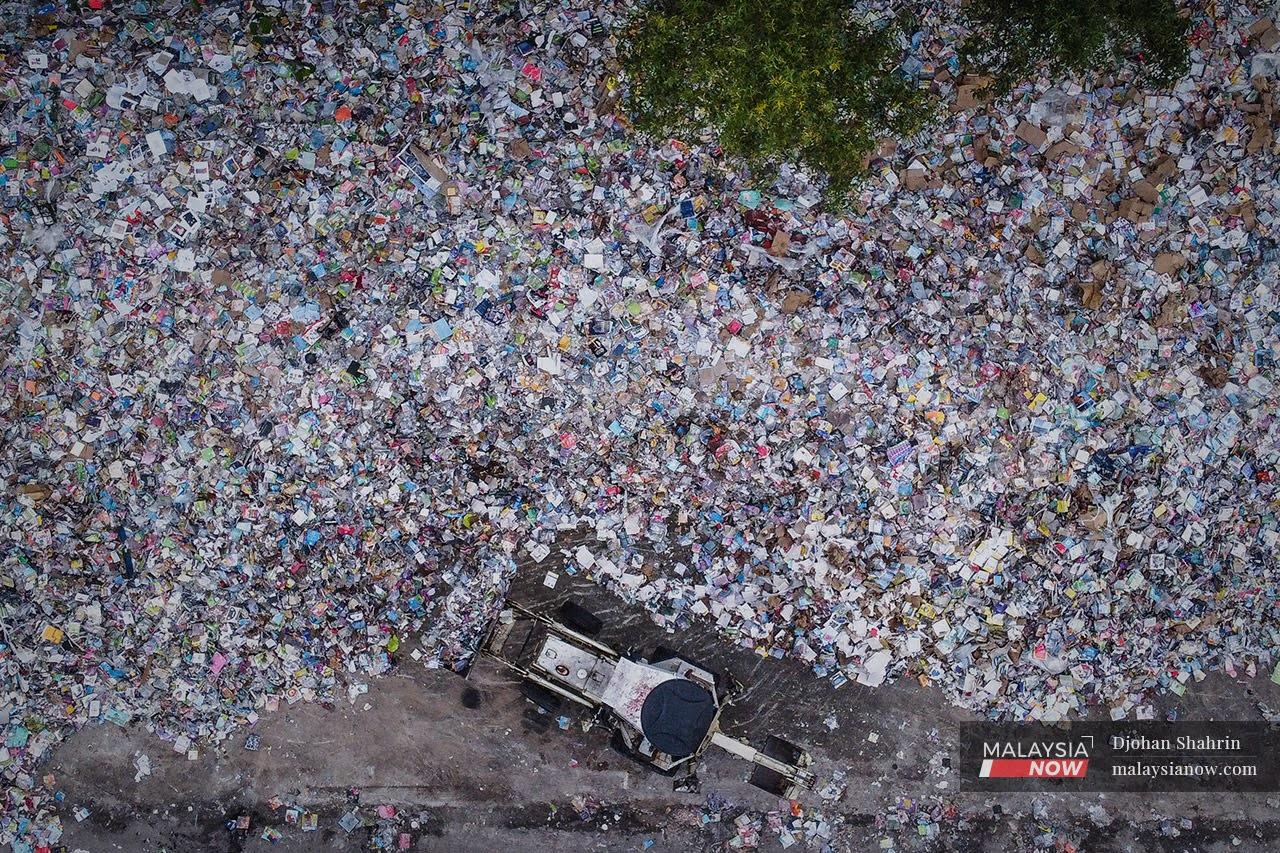Big bad losses as millions of books destroyed in flood
While most of them will be sent for recycling, it is still a blow to BookXcess founder Andrew Yap.
Just In
As the country struggles to deal with the aftermath of what has been described as the worst flooding on record with warnings of more to come, the list of losses and damages continues to grow.
Adding to the dismal catalogue are millions of books that had been stored in a warehouse in Shah Alam, one of the areas in Selangor worst hit by the floods which took authorities in the state by surprise.
Andrew Yap, co-founder of BookXcess, puts the retailer’s losses at 3.5 million books – more than the two to three million originally estimated.
Speaking with MalaysiaNow at the 200,000 sq ft warehouse in Section 33, Taman Alam Indah, he said it had taken time for his staff to “really assess” the damages suffered during the floods.
“You need to count every single book, then only will you know the total losses,” he said.
But books were not the only things in the warehouse lost to the massive deluge that left many areas in Shah Alam nearly completely submerged. They also lost equipment such as forklifts, bookshelves and packing machines.

“Those were our most important machines,” said Yap, who along with his wife Jacqueline Ng is also behind the popular Big Bad Wolf book fairs.
“We can’t send out books without wrapping them.”
He said they would need to wait another three weeks or so for more machines to arrive, adding that operations are currently paralysed.
Outside the warehouse, mountains of damaged books grow taller and taller as more waterlogged volumes are added to the piles. Some whose height has outstripped their stability collapse, toppling over the fence to land on the ground outside where new mountains begin to form.
Children play among the discarded books, searching like miniature treasure hunters for those that are “still good” in their eyes.

Most of them are from the surrounding neighbourhood, including the low-cost apartments nearby.
“The community there was badly affected by the floods, too,” Yap said.
“They said that some of the books in the piles could still be used, and they asked if they could take them. We couldn’t say no to that, so we let them pick any books they wanted.
“We never really stopped them, but we did remind them to clean the books before using them,” he added.
But despite the glee of the young treasure hunters outside, the sad truth remains that most of the books are unsalvageable.
Even those that escaped the floodwater have been affected by the humidity in the warehouse, which rose sharply in the wake of the disaster.
“Normal humidity is 30%, but ours went up to 70% or 80%,” Yap said. “That’s why we have to throw out all the affected books because if we keep them in the warehouse, the humidity level will become higher.”

Inside, the water rose to about five feet but even books that were stored at 10 feet and above were affected.
“The books that were not shrink wrapped are already affected. We have to throw them all away, too,” he said.
The decision, although hard, was also obvious as they wished to avoid the health hazard posed by the dirty flood water.
The cleaning process has been ongoing for two weeks and is expected to continue for another fortnight.
For 12 days after the floods, the warehouse was without electricity, forcing them to rely on a generator in order to clean the place.

Reluctant to see anything go to waste, they have arranged for the damaged books to be taken to a recycling centre where they will be given a new lease of life albeit in some other form.
But even so, for Yap, it is disheartening to see millions of books destroyed just like that.
“We have an emotional attachment to books, and we can identify the details of every single book that we see destroyed,” he said.
“Each book is powerful. They provide knowledge, and 3.5 million books could have gone to someone else’s home. They could have brought joy to other people – and now, we can’t do that anymore.”
Subscribe to our newsletter
To be updated with all the latest news and analyses daily.
